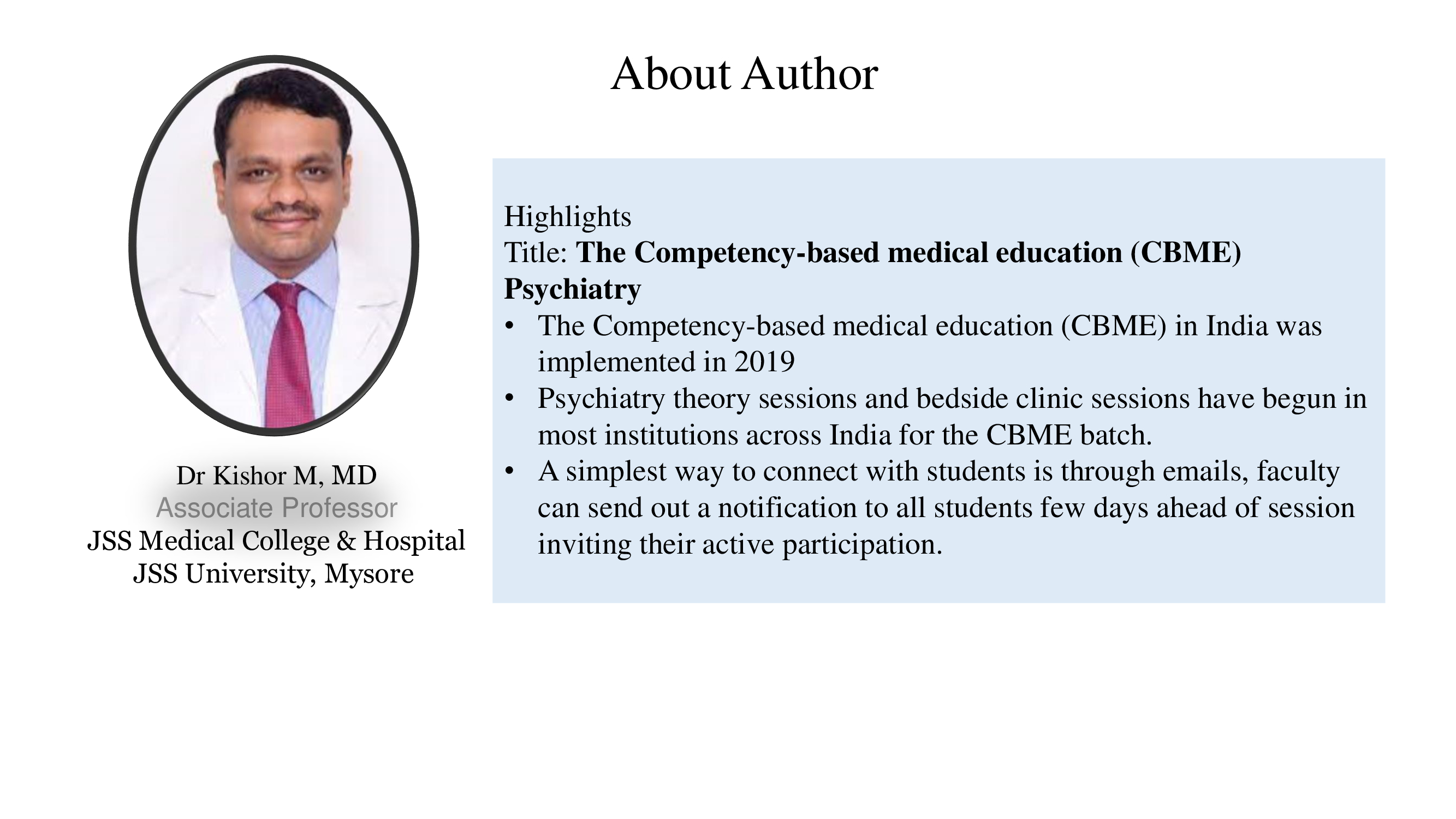Dr Kishor M
Volume 12 Issue 5 May, 2022

The Competency-based medical education (CBME) Psychiatry, should students & teachers jointly decide teaching learning sessions?
The Competency-based medical education (CBME) in India was implemented in 2019. The COVID-19 pandemic affected the entire teaching learning adversely and new approaches were tried. Many sessions were given up in the middle because of paucity of time. Currently in 2022, there has been active reflection on the sessions to be carried out under CBME. Psychiatry theory sessions and bedside clinic sessions have begun in most institutions across India for the CBME batch. There are many ways to enhance the utility of teaching learning sessions, looking at specific learning objectives (SLO) of each session and designing the lesson plan based on competencies required. One approach is considering the opinion of students who are adults, in understanding their perception of what may be beneficial? What may broaden their knowledge? What may enhance their skill?
A simplest way to connect with students is through emails, faculty can send out a notification to all students few days ahead of session inviting their active participation. For Example, if a session is about history of psychiatry (PS3.1) for 3rd year students, it would be interesting to know, what are students keen about the topic? In one such effort, we found that students were keen on, how psychiatry and psychology evolved in the timeline. The faculty was keen on talking about the noble prize winners in psychiatry and recent award winners such as Dr Bharat Vatwani, Dr Sharada Menon etc who made history. Hence a collaborative approach with enthusiastic participation of student and teacher, however small it may be, the CBME Psychiatry can be made interesting and useful.

Humility of Dr.Kishor. “however small, it might be”!